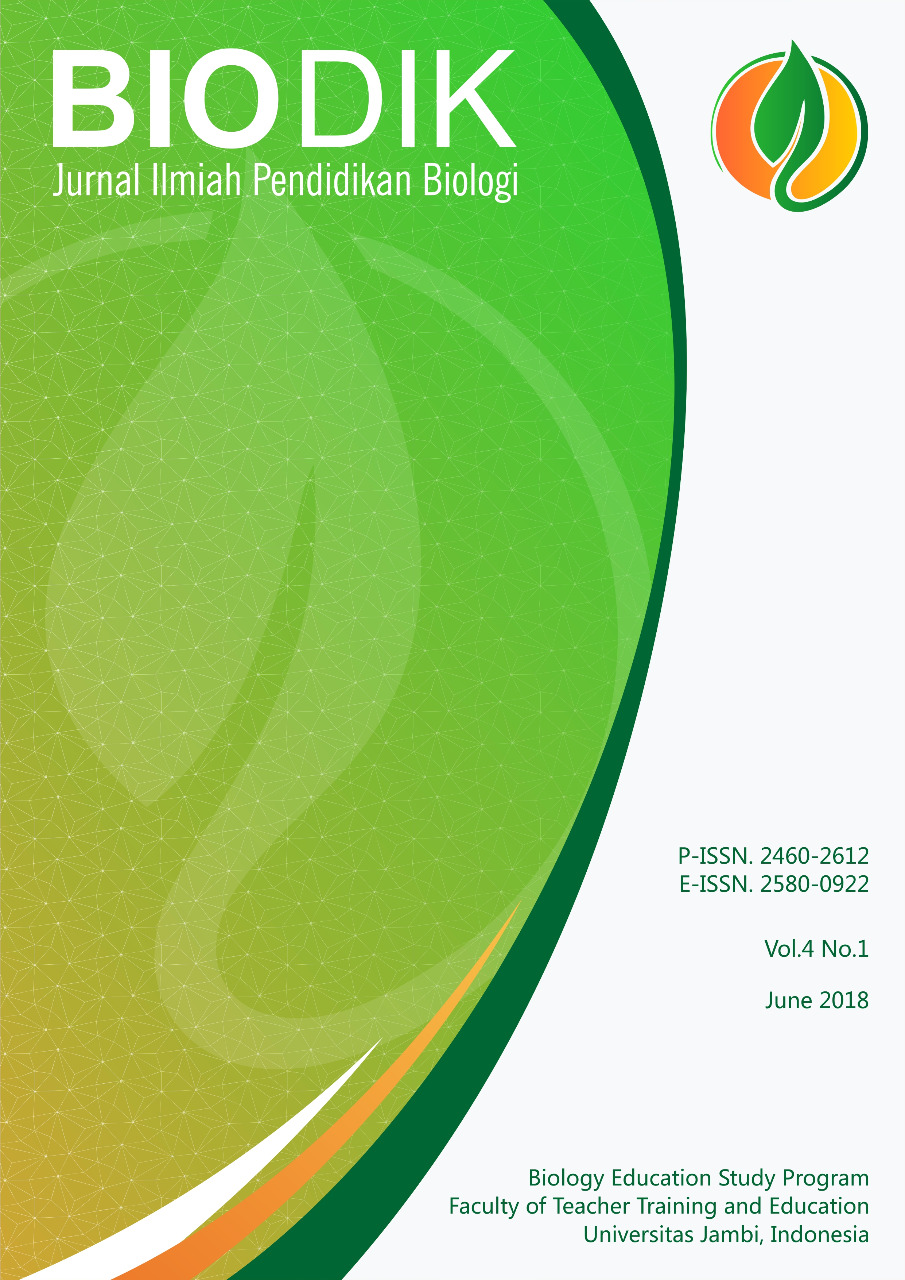Needs Analysis in Role Playing Learning Model Influence on Motivation and Biology Learning Outcome of the Students at SMA Negeri 3 Samarinda
DOI:
https://doi.org/10.22437/bio.v4i1.5503Abstract
This study addresses four domains: 1) description of Role Playing learning model use as a learning strategy in Biology instructional process at school, 2) perspectives and threats obtained by teachers at school when addressing Protein Synthesis topic 3) Role Playing learning model in Protein Synthesis topic of Biology learning, 4) the influence of Role Playing learning model towards motivation and Biology learning outcome. The results of this study is teacher needs analysis instruments, analysed using descriptive qualitative. The study showes that the use of Role Playing Instructional Model during Biology learning process has not been performed at school according to three reasons: 1) obstacles obtained when addressing the topic which is difficult to observe, 2) the difficulties obtained when addressing Protein Synthesis topic, in this case, teacher needs to apply Role Playing instructional Model to engage students with their environment, 3) Role Playing as an instructional model that demands students to learn from their experience in order to motivate and improve their learning outcomes.
Downloads
Downloads
Published
Versions
- 2018-06-01 (1)
- 2018-06-01 (1)
How to Cite
Issue
Section
License
Copyright Notice
Authors who publish with Biodik : Jurnal Ilmiah Pendidikan Biologi agree to the following terms:
- For all articles published in Biodik : Jurnal Ilmiah Pendidikan Biologi, copyright is retained by the authors and grant the journal right of first publication with the work simultaneously licensed under a Creative Commons Attribution-ShareAlike 4.0 International Licensethat allows others to share the work with an acknowledgment of the work's authorship and initial publication in this journal.
- Authors are able to enter into separate, additional contractual arrangements for the non-exclusive distribution of the journal's published version of the work (e.g., post it to an institutional repository or publish it in a book), with an acknowledgment of its initial publication in this journal.
- Authors are permitted and encouraged to post their work online (e.g., in institutional repositories or on their website) prior to and during the submission process, as it can lead to productive exchanges, as well as earlier and greater citation of published work (See The Effect of Open Access).
















